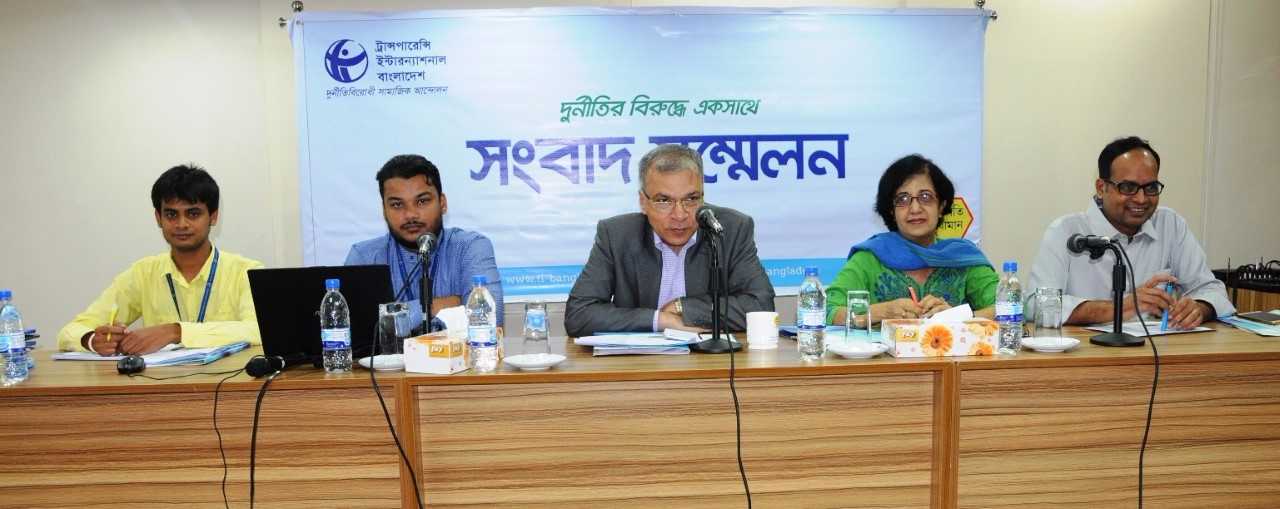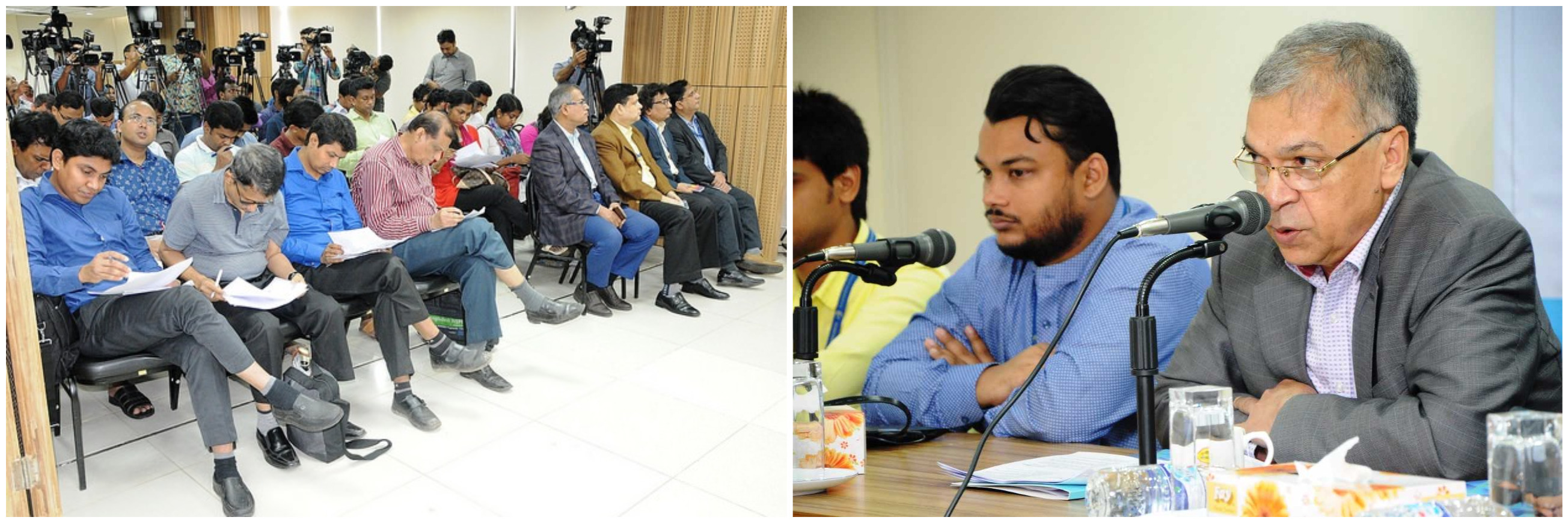Published: 23 August 2017
A TIB study identified significant deficiencies such as `unethical influence’ in approval, illegal implementation of the projects by politically influential sub-contractors, absence of meaningful participation of stakeholders and lack of coordination among them in implementing climate projects by Bangladesh Water Development Board (BWDB). Besides, arbitrary selection of project areas, inadequate knowledge of officials concerned and indifferences of authorities in addressing the irregularities were contributing to the weak governance in the projects, a TIB study revealed.

The study recommended establishing grievance redressal mechanism and independent
citizen-led monitoring and evaluation, involving community in project implementation and ensuring proactive
information disclosure of the projects for bringing transparency.
A study by TIB titled `Climate
Finance and Governance in Project Implementation: The Case of Bangladesh Water Development Board’ examined six BWDB
projects funded by Bangladesh Climate Change Trust Fund (BCCTF). The study found serious governance deficits in BWDB
climate projects, which was unveiled through a Press Conference on 23 August, 2017 at TIB’s Dhaka office. Aimed at
exploring the governance challenges in BWDB projects funded by climate finance, the study analyzed the collected
data on the basis of four indicators: transparency, accountability, integrity and participation during March 2015 to
July 2017.
TIB’s Executive Director Dr. Iftekharuzzaman, Adviser, Executive Management of TIB Professor
Dr. Sumaiya Khair, Senior Programme Manager of the Climate Finance Governance (CFG) unit of TIB M Zakir Hossain Khan
were present while Ghulam Mohiuddin, Programme Manager, the Climate Finance Governance, TIB presented the
findings.
According to the study, the governance scenario in the selected six projects were found
inadequate and insufficient, information were not disclosed upon demand and community approach shunned in favour of
corruption. The study also found severe lack of accountability in the BWDB’s working system. According to the
report, climate projects drew less attention from the management because of low budget, coupled with irregularities
by a nexus of the project stakeholders. Furthermore it was also found that none of the projects were evaluated and
audited by the Implementation Monitoring and Evaluation Division (IMED) and Comptroller and Auditor General’s
office. It was also found that no monitoring and evaluations were even conducted by the central monitoring and
evaluation team of the water board and Bangladesh Climate Change Trust Fund (BCCTF). And no project monitoring was
done by the inspection teams of water resources ministry or IMED of planning ministry.

The study also found an absence of any proactive system to settle complaints regarding
project implementation. It further observed that although the e-tendering system is considered the best method in
public procurement, its effectiveness in ensuring transparency and integrity is limited as the system only confined
to tendering process; not in tender evaluation and the selection.
The report found that the BWDB
undertook 141 projects with an allocation of Tk 11.30 billion, which was 40 per cent of the total Bangladesh Climate
Change Trust (BCCT) fund during the period from fiscal year (FY) 2009-10 to July 2017. Around 92 per cent of the
local people, surveyed in the study, did not know about the projects being implemented for them while the
information board was not properly installed in most of the projects violating the rules, the study
revealed.
TIB Executive Director Dr. Iftekharuzzaman said “Although some positive initiatives were seen
in the implementation of climate projects by Water Development Board, irregularities, lack of good governance as
well as integrity were found there in an overall assessment.” Although there is a legal binding for information
openness, the rules were violated and the projects were not implemented for ensuring quality, he added. He further
said the absence of meaningful participation of stakeholders in curbing irregularities and corruption made the
overall governance system weak. Dr Zaman urged the Water Resources Ministry and the BWDB to accept TIB’s
recommendations positively, and take steps to initiate necessary reforms.
The 14-point recommendations
included, among others, specific instructions about the contents of information to be incorporated in existing
law/policies, provisions for establishing grievance redress mechanism and independent third party monitoring and
evaluation should be included in the existing legal framework. It also recommended involving community people in
project implementation and need to capacitate local people for raising voices, sharing all relevant information
(project proposal, monitoring reports, evaluation reports, audit report, tender, project design, implementation
area, budget etc.) through the websites, need to assess climate vulnerabilities properly including activation of
ethics committee.
Useful links of Climate Finance and Governance in Project Implementation: The Case of Bangladesh Water Development Board - (Click below)







